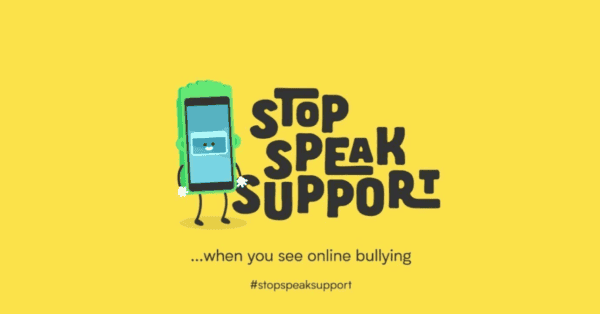Stop, Speak, Support explained
Parents’ advice guide
Help children use the new code and inspire change to stop cyberbullying. Stop, Speak, Support is a great tool to help your child make smart choices online. You can use it as a talking point to better understand how they interact in their digital world.
CLICK ON EACH STEP TO SEE HOW YOU CAN SUPPORT YOUR CHILD







